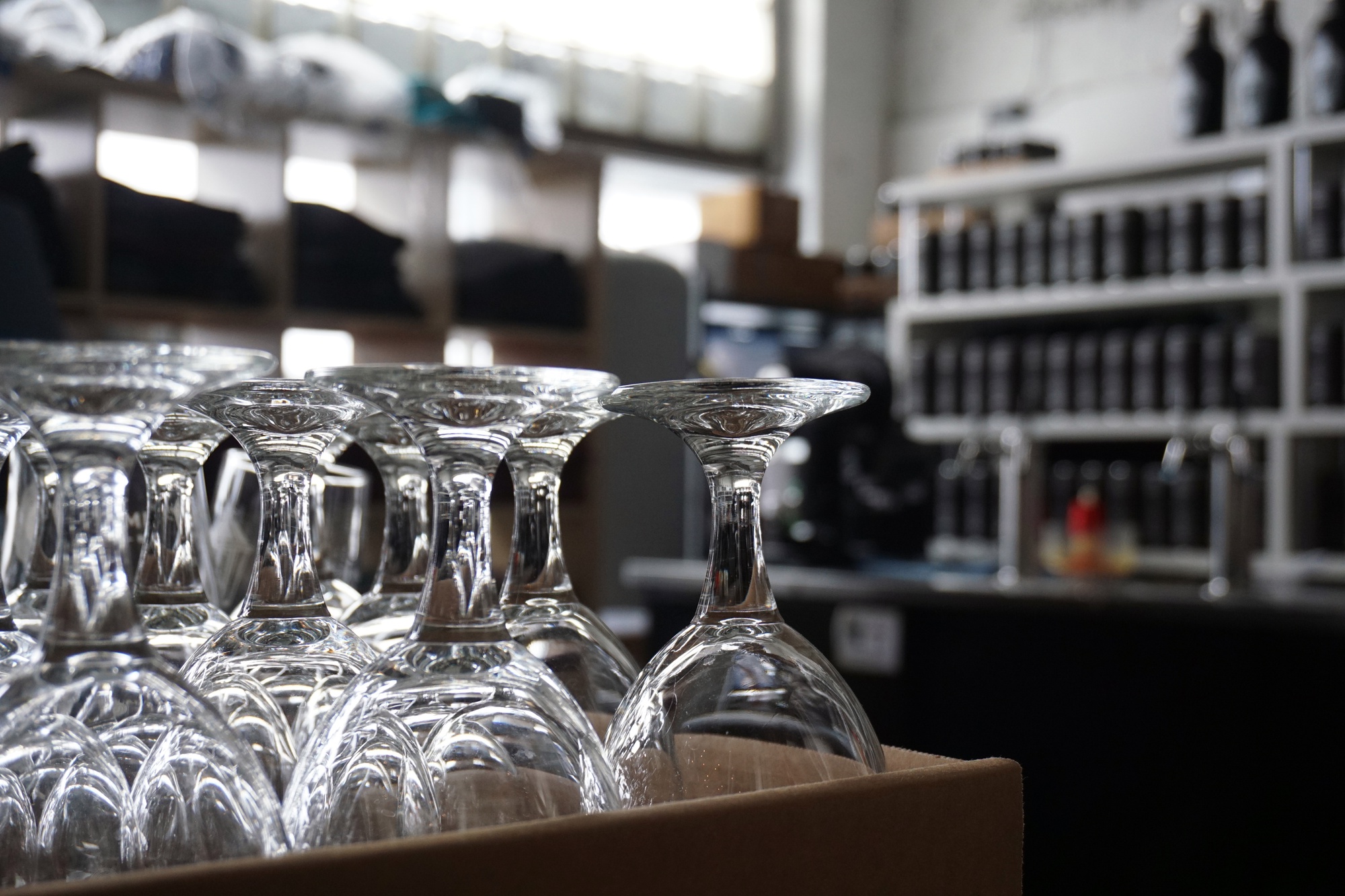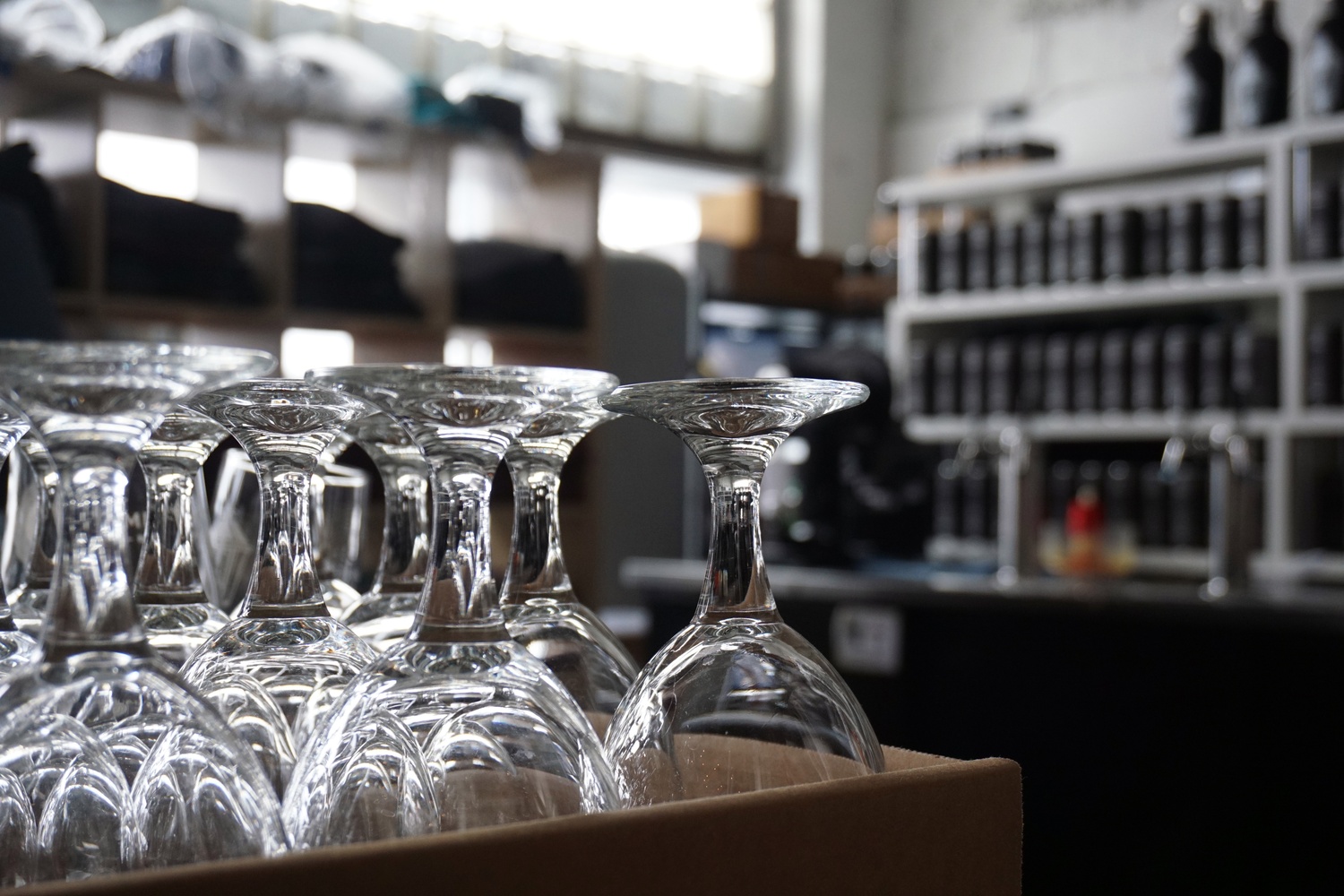
Women, Beer… and Empowerment?
Maybe it’s my inexperience speaking, but I’ve never pictured coffee and beer going well together. So when I walk up to the counter in the cozy common area of Longfellows Coffee House and ask to be directed to the beer brewery taproom, I’m not sure what to expect.
I’m directed to a small door past a wall of windows. As I enter the taproom, I almost walk directly into large wooden barrels of all shapes and sizes (some even bigger than me!). Beyond these barrels, I see what looks like a dressed-up, homey garage. The concrete ceilings are lined with golden twinkly lights and the sliding door is cranked up slightly, letting in the afternoon sun. Once inside the taproom I’m greeted by the sounds of hearty laughter, two very friendly dogs, bursts of steam from a process I later learn is called beer-boiling, and strong aromas of wheat, pears, and… is that my mom’s morning Indian Masala tea?
I’m inside Lamplighter Brewing Company, located on Broadway Street in Cambridge, just a short walk away from the Central Square T-stop. Lamplighter is relatively young—just one-and-a-half years old—and during the day time, it rents out space to Longfellows Cafe. This gives Lamplighter a unique atmosphere: relaxed, coffee shop hangout by day, brewery and somewhat rowdy, hip bar by night.
Today, March 8, Lamplighter is home to an unexpected event. In celebration of International Women’s Day, Lamplighter participated in the Pink Boots Society’s Women’s Brew Day for the first time. Breweries across the United States host brew days which aim to “assist, inspire, and encourage women beer industry professionals” in this heavily male-dominated occupation.
Cofounder Cayla E. Marvil (who says she enjoys dark beers and porters) is clad in an all-black work outfit and oversees the beer-boiling process, as well as the general flow of the day’s event. She finds Lamplighter’s overall mission aligns nicely with the goal of Pink Boots Brew Day. “Our team is half women; they are all badasses, and it’s kind of a no-brainer,” Marvil says. “This is our first year [participating in Pink Boots Brew Day], but we will certainly do it in years to come.”

Lamplighter is a close-knit family of 35 employees, all of whom are enthusiastic about the brewery’s vast collection of eclectic beers. The brewery embraces the funky and the weird in its craft brews, even borrowing coffee and tea from Longfellows to add to concoctions. Lamplighter’s website proudly tells customers to expect “a lot of sour, a lot of funk, a lot of hops, and a lot of fun” when trying their beers. The names of the beers are unique compositions, often named after employee-chosen tunes and quirky jokes. Some Lamplighter taproom favorites include “After Midnight,” an imperial stout brewed with maple syrup and vanilla, and “Raspberry Fields,” a Beatles-inspired, fruity, wild Farmhouse ale.
Today, a handful of Lamplighter’s female staff—bartenders, marketing directors, and retailers alike—are out on the brewing floor. Except for Marvil, none of these women had brewed before this event. The beer being brewed is an experimental Milk Stout and Chai Tea, a recipe designed together by the entire team.
The women are perched atop ladders, peering into wooden beer-filled containers. They work hands-on with compression valves that regulate fluid emission. They laugh and dance along to ’90s pop while they discuss the specifics of the beer-making process.
Bri G. Grealish (whose favorite beers include farmhouses) is the lead bartender at Lamplighter. Stepping off a ladder, sleeves still rolled up, Grealish discusses how empowering this event is for her. “I think [International Women’s Day] translates here to women being able to step up in this business, this industry, and start taking control,” he says.
Meghan C. Knetemann (who enjoys drinking Werewolves of Cambridge, a Lamplighter special) is a bartender and lead retailer at Lamplighter. With hair pulled in a ponytail away from her face and bright eyes still watering from working with the beer vapours, Knetemann shouts “This is so exciting!” in between completing different brew-related tasks.
Her expression turns more serious as she discusses the role of women in the beer industry.
“I think one of the problems with being a woman in this industry is sometimes you have to fight a little harder, or work a little harder to make it to the same spot.” She fondly recounts a bartending memory in which a few bartenders from another brewery voiced their admiration of Lamplighter’s staff. “It was nice to be recognized by our peers as being really wonderful members of this community, and that’s what craft beer is—it’s more of a community, really more than anything,” Knetemann says.


